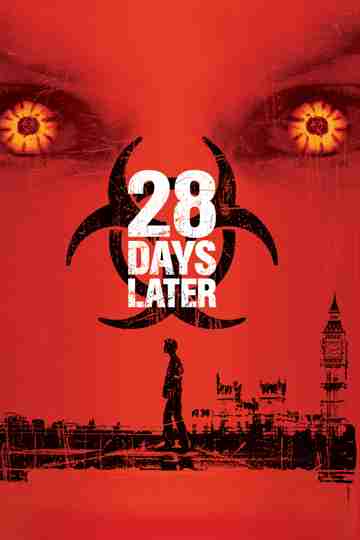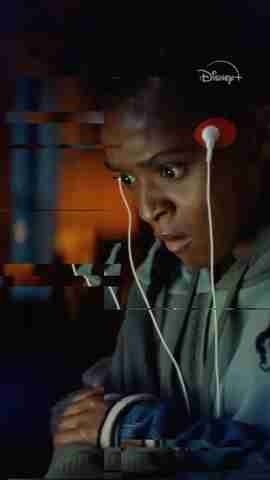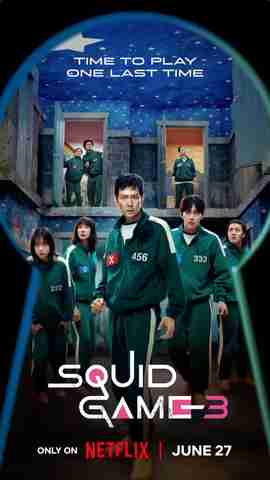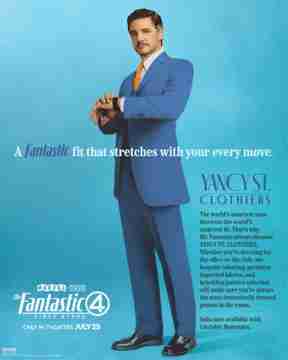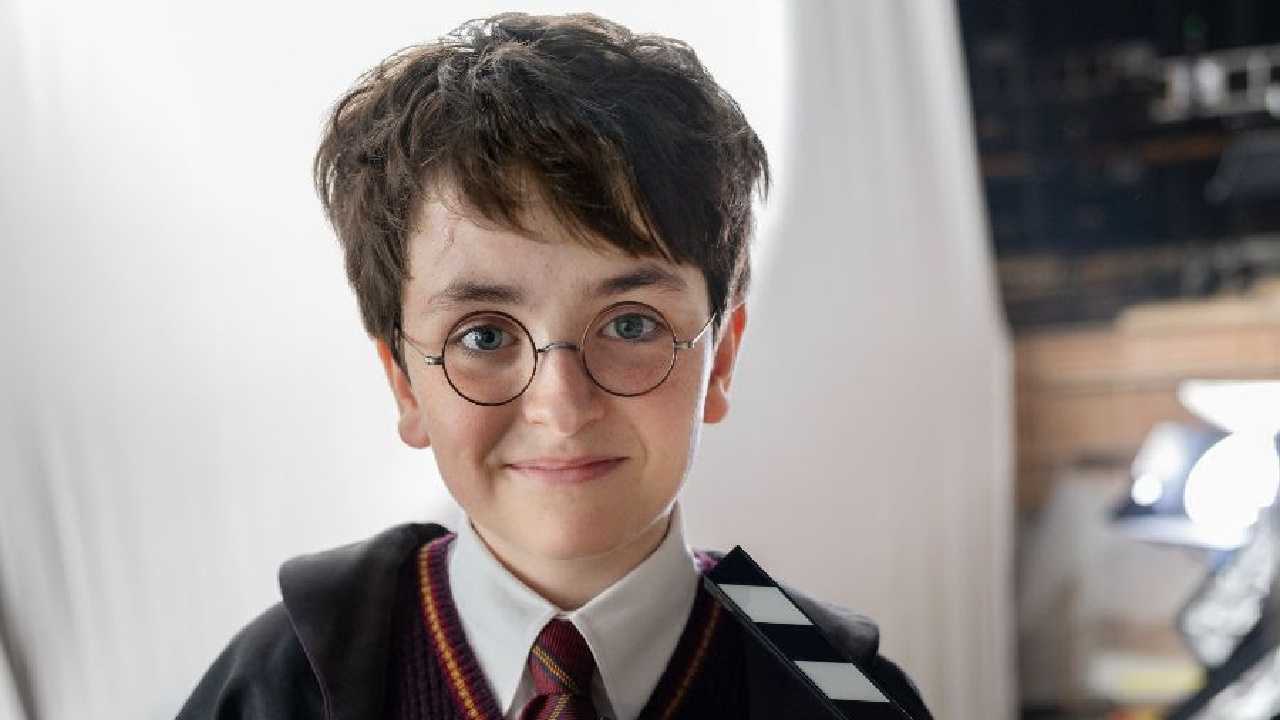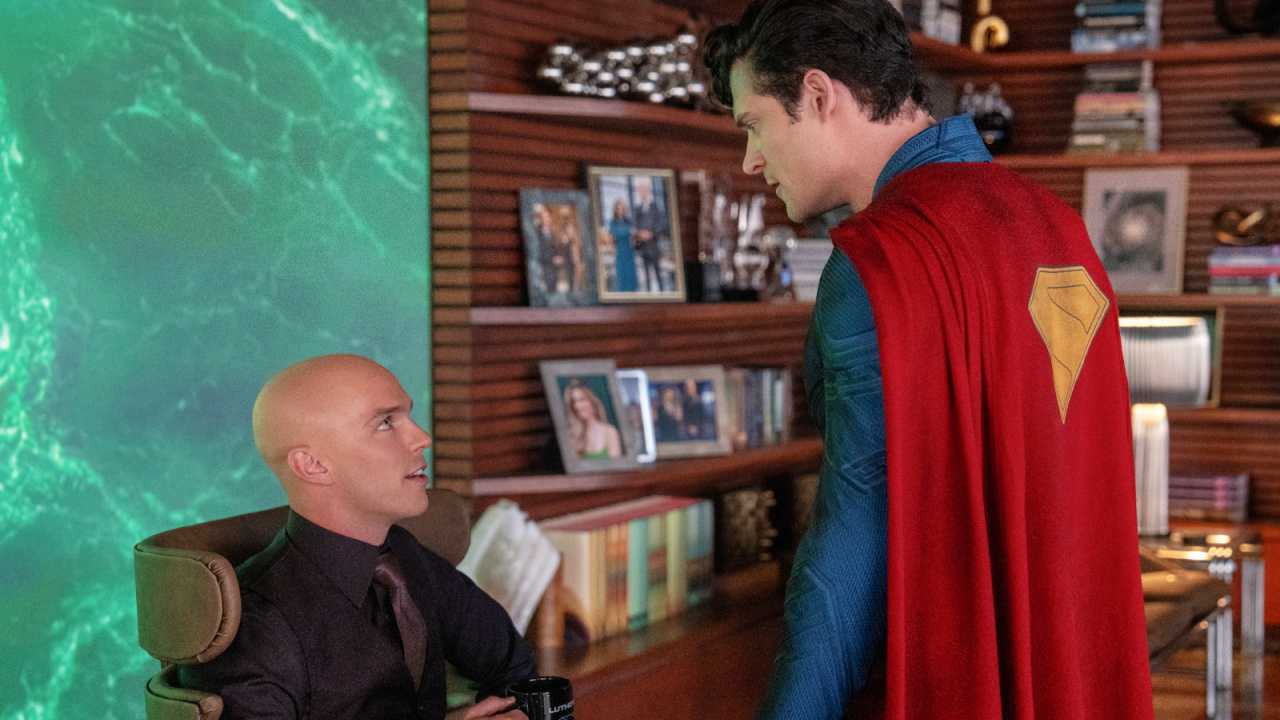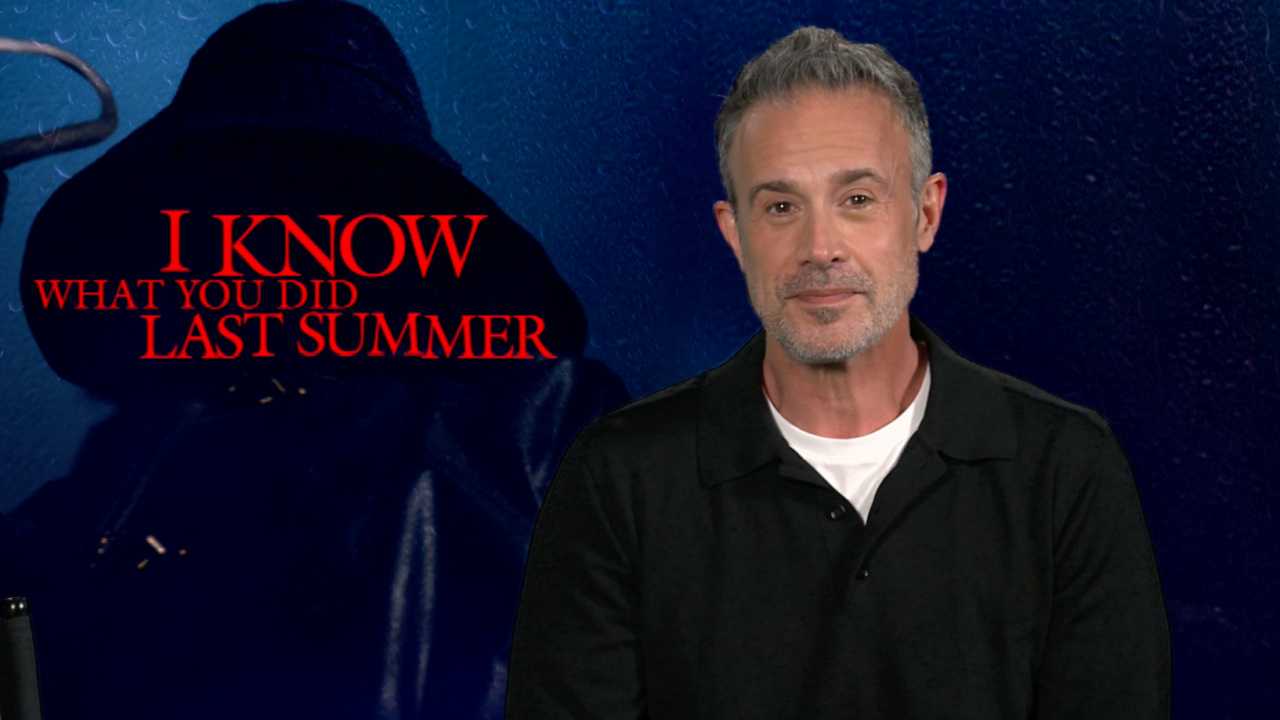Filmmaker Jared Moshé Talks 'Aporia' and the Rules of Time Travel
Moviefone speaks with director Jared Moshé about 'Aporia.' "I wanted to do a movie that explored someone grappling with uncertainty," Moshé said.
Opening in theaters on August 11th is the new time traveling drama ‘Aporia,’ which was directed by Jared Moshé (‘The Ballad of Lefty’).
What is the plot of ‘Aporia’?
Since losing her husband Mal (Edi Gathegi) in a drunk-driving incident, Sophie (Judy Greer) has struggled to manage crippling grief, a full-time job, and the demands of parenting her devastated teenage daughter (Faithe Herman). When her husband’s best friend Jabir (Payman Maadi), a former physicist, reveals that he has been building a time-bending machine that could restore her former life, Sophie will be faced with an impossible choice—and unforeseeable consequences.
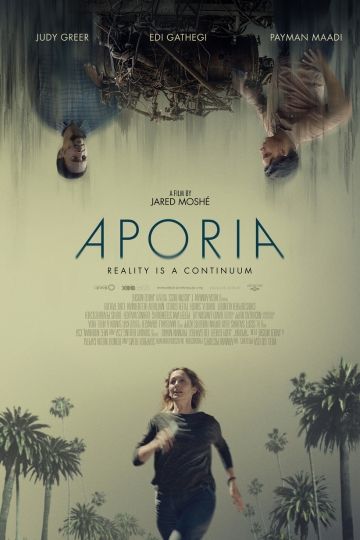
Who is in the cast of ‘Aporia’?
Judy Greer ('Ant-Man') as Sophie, Edi Gathegi ('X-Men: First Class') as Mal, Payman Maadi ('13 Hours: The Secret Soldiers of Benghazi') as Jabir, Faithe Herman ('Shazam! Fury of the Gods') as Riley Rice, Whitney Morgan Cox ('Animal Kingdom') as Kara Brinkley, and Veda Cienfuegos ('Circuit Breakers') as Aggie.
Moviefone recently had the pleasure of speaking with filmmaker Jared Moshé about his work on ‘Aporia,’ developing the screenplay, the themes he wanted to explore, the rules of time travel, creating the look of the time machine, Sophie and Mal’s relationship, how things change when he returns, their obsession with “fixing time,” and assembling his excellent cast.
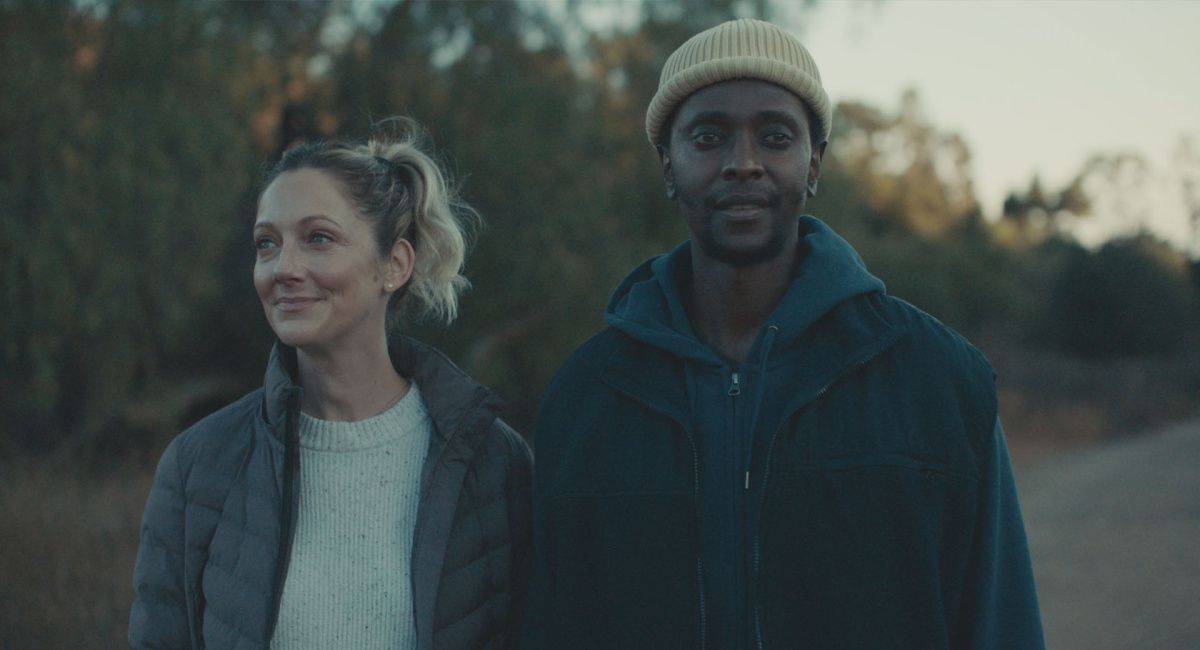
(L to R) Judy Greer and Edi Gathegi in Well Go USA Entertainment’s 'Aporia.'
You can read the full interview below or click on the video player above to watch our interview.
Moviefone: To begin with, can you talk about developing the screenplay and the themes that you wanted to explore with this movie?
Jared Moshé: So the idea for the screenplay came about when I was becoming a dad for the first time. Suddenly, the world became a lot scarier, everything felt a lot more uncertain. It just became scarier. I was trying to figure out how to wrestle with that. I found that as an artist, the best way to do that is sometimes through my art. So I wanted to do a movie that explored someone grappling with uncertainty, and trying to find a way to control the world, to a way that they understand it and bring it back to that place. While I was trying to figure out how to do that story, I remember this weird, crazy idea I'd had for a gun that could murder people in the past. I had this idea and I was like, "I don't know what I'm going to do with that." And then I was like, "Oh, what if a character has to use that to try to regain control of her life?"
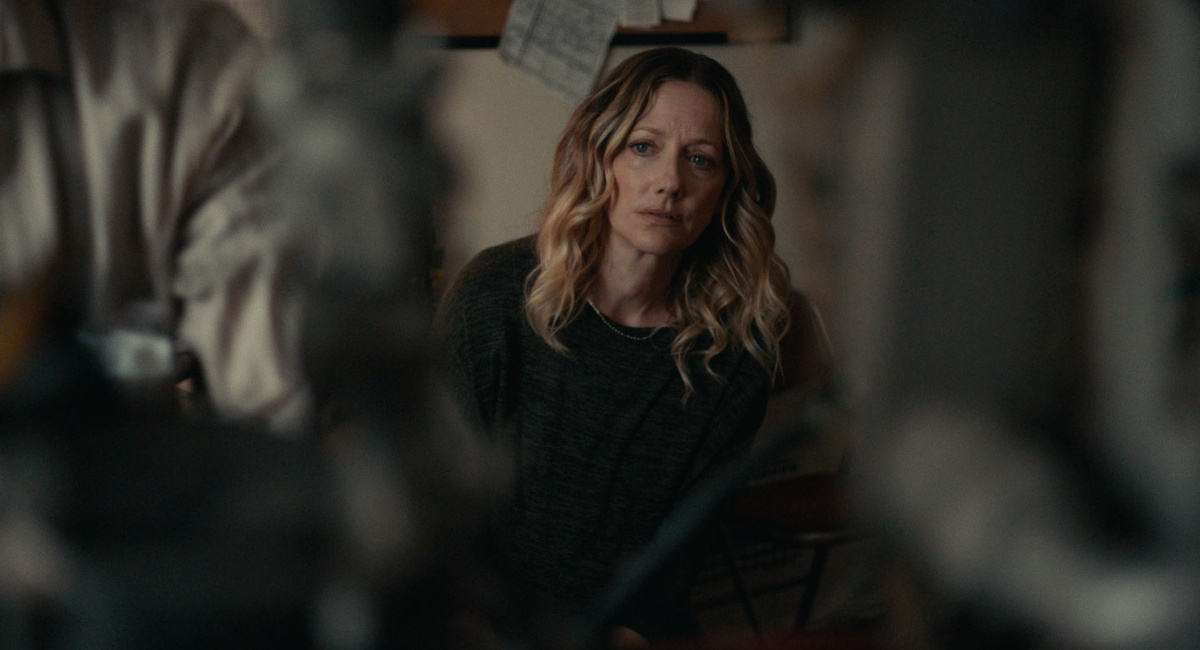
Judy Greer in Well Go USA Entertainment’s 'Aporia.'
MF: So, it’s sort of playing off of the “going back in time to kill Hitler” idea, is that right?
JM: Right. It's totally like that. But on a much more personal level. One of the things I think, is we like to talk about the world and this big space, but our worlds are really small, and our worlds are the lives we build for ourselves. So it's a lot easier for someone to justify using it for their world, than it is for like, "Oh, well, I'm going to kill baby Hitler," because who knows what that would do?
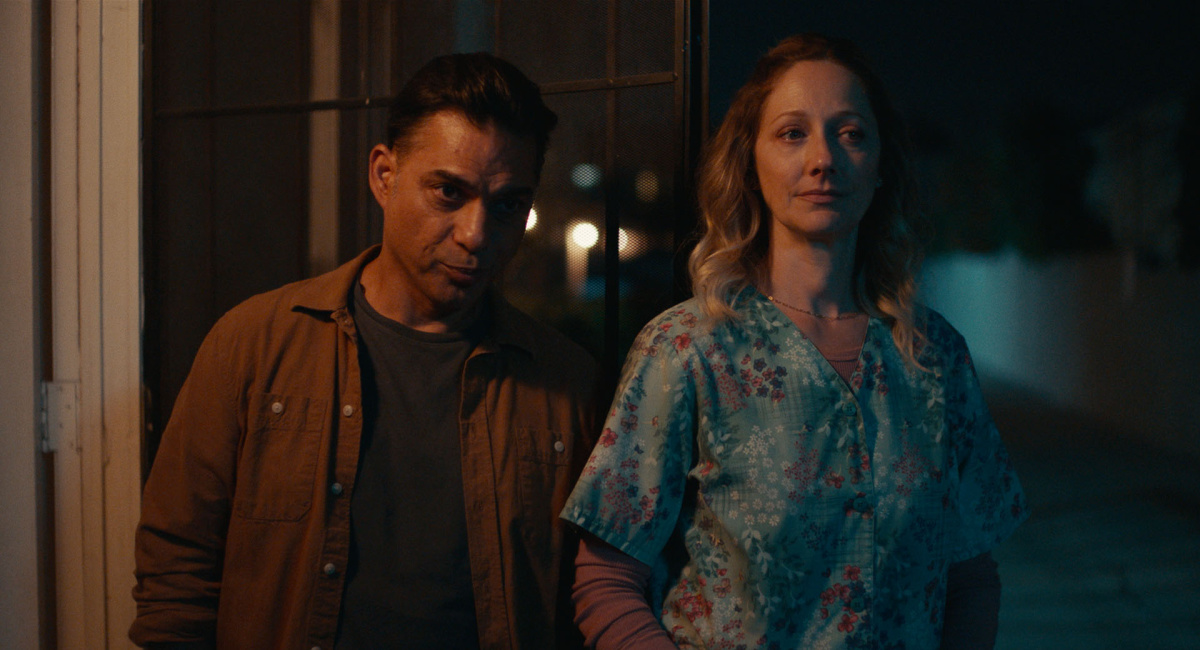
(L to R) Payman Maadi and Judy Greer in Well Go USA Entertainment’s 'Aporia.'
MF: Every movie or TV show has their own specific rules about time travel. What were the rules of time travel that you wanted to establish for this story?
JM: I wanted to try to keep it as simple as possible, when I was putting up this world. For this story, I thought about how to do it in a way that felt somewhat scientifically plausible and didn't give any easy answers. So the rules I set forth with the machine, I thought it was a particle accelerator, and it could create a particle and it could send it back in time. If somehow you get it in someone's head, it can cause basically, an aneurysm or a stroke. I was like, "All right, well if you're doing that, the machine can only do really one thing. Kill someone." Because if you shot a particle back in time to a wall, what's going to happen? So the machine can only kill. Then two, you can't un-kill. It's like you fired the bullet, it's out of there. So there's no take backs. Then three, being sort of inspired by the way quantum physics works and relativity, I figured if you use the machine, you observed a change in the timeline. So you remember the original timeline, not the new one you've created.
Related Article: 'Aporia' Exclusive Clip
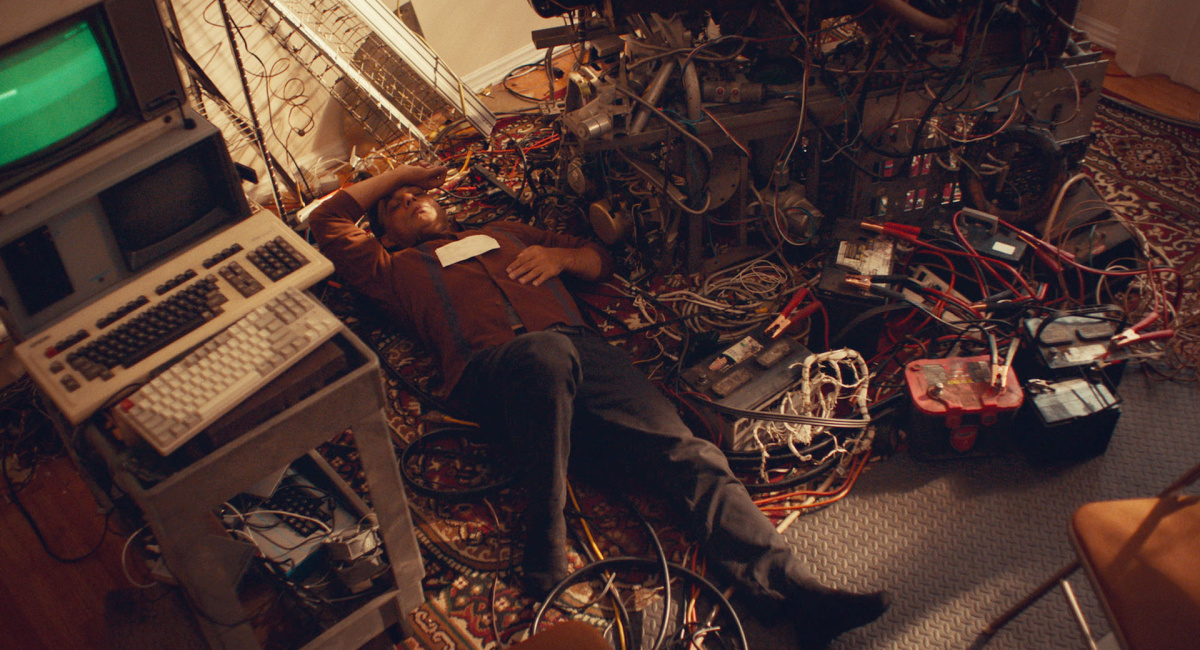
Payman Maadi in Well Go USA Entertainment’s 'Aporia.'
MF: Can you talk about designing the look of the time machine? What did you want that to look like on screen?
JM: I wanted it to look like a piece of crap. I wanted the most powerful machine in the world to look like a piece of junk. I gave my production designers two instructions. So I had two production designers on this movie. Kati Simon, who handled the world and everything else, and Ariel Vida who handled the machine. I gave her two pieces of instruction, direction. First was that it’s a particle accelerator. The second one was, make it look like a fire hazard. I want this thing to feel like it's going to burn down. It's more likely to burn down the building than it is to actually do what he says it does. She went in there and she learned how to weld. She grabbed things from junk shops. She would take stuff she found on the side of the street, like old jukebox parts. She rented the main part of it and then just went crazy. Our philosophy was, we don't know what actually works and what doesn't work, because our characters don't know what actually works and what doesn't work. They've tried to build this thing so many different times, and so many different times it's caught on fire, blowing all the fuses. The fact that it does the work is just almost a miracle.
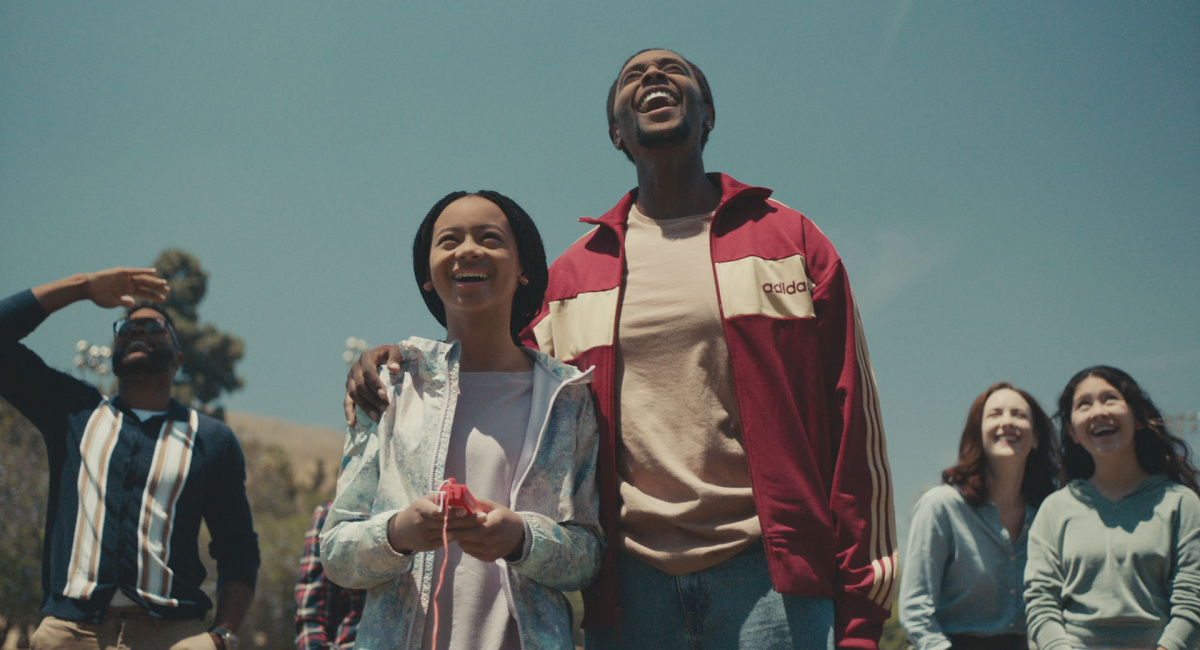
(L to R) Faithe Herman and Edi Gathegi in Well Go USA Entertainment’s 'Aporia.'
MF: Can you talk about how Sophie and Riley are dealing with Mal’s death in the original timeline, and how their lives change after Jabir offers Sophie this rare opportunity to bring Mal back?
JM: So I think Sophie, played by Judy Greer, my idea for this character is she's created her life to be this very controlled thing. She went to nursing school, she became a nurse because she understood there's always going to be need for nurses. We're always going to have our life in front of us. She built this little life. They're not rich, they live month to month. They rent, they're not particularly well off, but they built out a little life that they're really proud of and live in. And it's been taken, when the movie starts, that's been ripped away from her. Suddenly this one thing that she's sort of built her whole life towards is gone and that grief is overwhelming. It's like, the expectations of what you're setting out to be just change completely. Adding to that grief is the fact that she has always been the provider for her family. Her husband Mal, played by Edi Gathegi, was kind the stay-at-home dad. He got his disability checks and he stayed at home. He raised their daughter Riley, played by Faithe Herman. So not only was she struggling with her life being blown up in a way she doesn't understand, but also, she suddenly has to take on this whole other role. She's not just the provider anymore. She's the provider and the mother, and she has no clue how to do that, and no trust in her abilities to do that. Meanwhile, Riley, played by Faithe Herman is struggling so hard to connect to her mom. To try to find a place in this world when the one figure who was always there for her, her dad, was gone. It's just suddenly made the world a lot darker and a lot scarier. So when Mal returns, things are still more complicated than Sophie thought, because as much as she thought she wanted this life back together, they spent the last year essentially apart because he was killed eight months ago. She remembers the eight months where he's dead. He's living in the eight months where he's alive. Riley's living in the eight months where he's been alive. So suddenly, Sophie finds herself like this outsider in her own family, and she's struggling to understand why, and what's going on? What is all she missed? What does that mean about her connection with Mal? Meanwhile, Mal notices how strange Sophie is acting, because Sophie's almost gushingly excited. "I have you back. You've been dead. This is amazing." He has no clue. It’s like, "Why are you hugging me so much? This is weird. Why aren't you being your normal self?" So it creates this disconnect that she wasn't expecting, and they both have to grapple and figure out how to make it work.
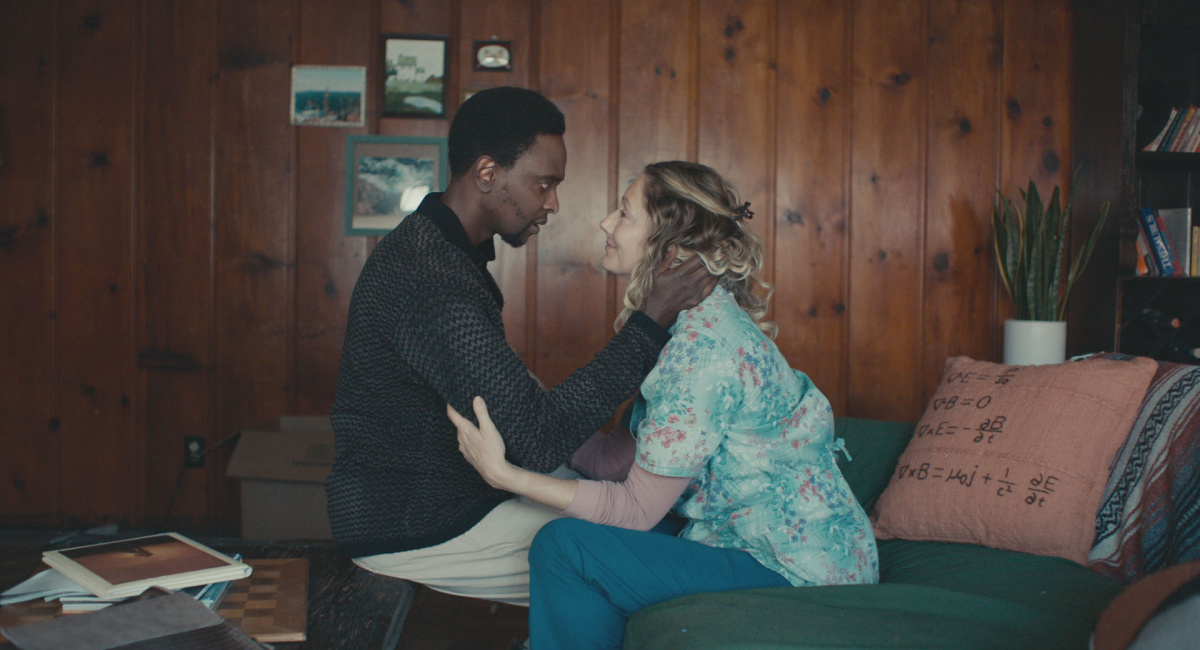
(L to R) Edi Gathegi and Judy Greer in Well Go USA Entertainment’s 'Aporia.'
MF: Can you talk about the bond that Sophie, Mal and Jabir form together and their obsession with “fixing time”?
JM: Well, I think it was really important to me when I was coming up with this story, that there was no real bad guys. I mean, I guess other than maybe Darby (Adam O’Byrne) at the beginning, but even he's not a real bad guy in that way. But there's no bad guys. There's not one of them that is evil or has evil motivations. Not one of them is going to get corrupted by this power. It's much more about, they each sort of realize they have this incredible thing in front of them. They want to use it to fix things in different ways. For Payman Maadi, who plays Jabir, he's sort of already figured out all the moral conflicts of this. He feels like, all right, he's done the trolley problem in his head a hundred times, and he knows what decisions he'll agree with. So he sees this as a great opportunity to make the world a better place. Whereas, Sophie is much more concerned about what's going on in the repercussions of the choices she's already made, and the dangers of using this machine. She kind of wants to find a way to fix things, fix her mistakes, and she doesn't know if the machine is the best way to do that or not. Meanwhile, Mal's like, "Oh my gosh, this is an incredible thing." He's kind of like the guy who's left out of it. They all got to use it but he didn't. There's a part of him that's like, "There's this incredible thing I'm part of. I want to be able to do something with it, but I don't know what to do. I feel like I'm a little late to the party." As much as they all care about it and connect, and have this obsession with this thing, the most powerful machine in the world that's sitting in Jabir's bedroom, they don't know what is the best way forward.
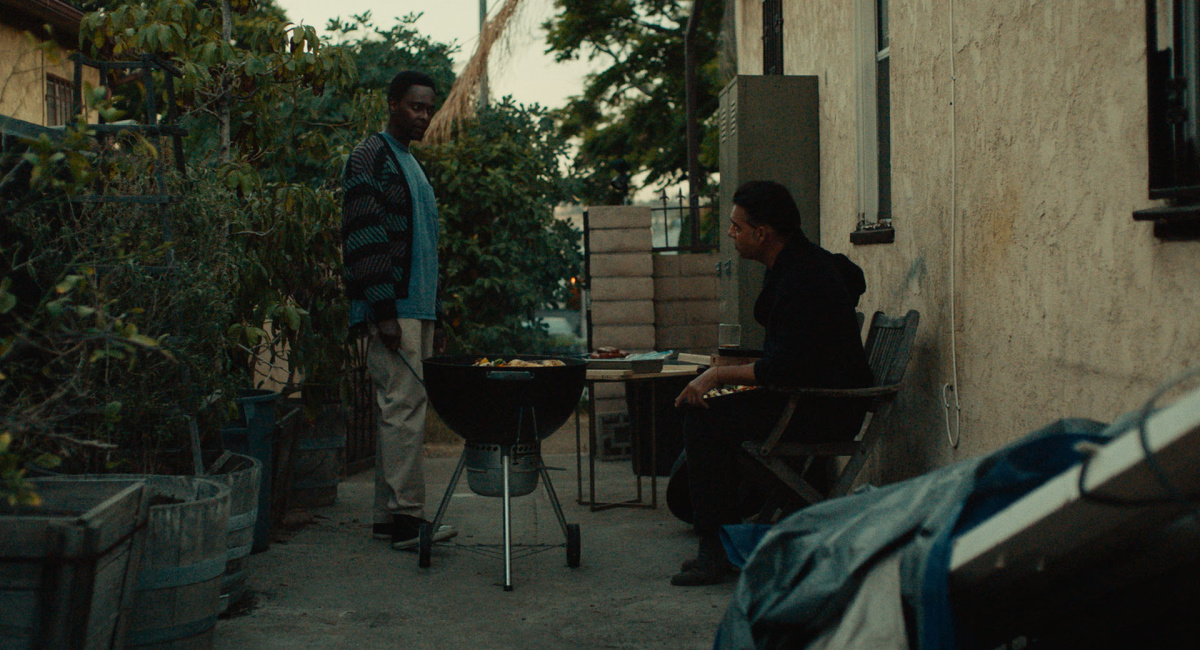
(L to R) Edi Gathegi and Payman Maadi in Well Go USA Entertainment’s 'Aporia.'
MF: Finally, can you talk about assembling your excellent cast?
JM: I love my cast so much. I don't know how I got so lucky, honestly, to get them. So, Judy Greer is just an incredible talent of an actor who's been around for so long, and for so long she's had to do supporting role parts, the best friend or the sidekick. But that sort of belies the talent that she really has as an actor. You see it comes through. It comes through in ‘The Descendants,’ it comes through in ‘Halloween,’ it even comes through in ‘13 Going On 30.’ You can see it in these little moments. So, I felt like she is one of the most expressive faces out there. I really wanted someone who can convey the maelstrom of emotions that Sophie is feeling, and that's why I thought Judy would be the perfect actor for this. Then also, I kind of like the idea of this story being focused on the people you don't expect to be the center of movie, and Judy was perfect for that just on a sort of metal level. We got her the script. Luckily for us, she responded to it and she and I had a great conversation, and we were able to attach her. Then once we had Judy and we needed to figure out who our Mal was going to be. One of the things I love about Edi Gathegi as an actor is the way he can use stillness. Judy is all energy and emotion, and she can really show everything. Eddie is very still and emotes so powerfully with the slightest gesture or just his eyes. It's like his body will be still, and there'll be a world of emotion and meaning in a look. I felt like he was the perfect foil to put with Judy, because he's the stillness and feels more like the rock in the relationship, which is what Sophie feels he is, and that they would play really well together. Thankfully they did. Then the last one was Payman Maadi, who he's a huge Persian actor. I mean, when I saw ‘A Separation,’ I was just like, "Who is this guy?” He should be a huge movie star in America, and hopefully he will. When I was trying to find the right actor for Jabir, who is a character who understands who he is and is very self-aware, but has made some choices that someone might say are morally ambiguous. I think it's really important to have someone who embraces empathy, because he's a very empathetic character. So much of the movie is his story as much as it's theirs, and the choice, especially given where the film goes. I wanted an actor who could portray that empathy. Luckily, Payman was available and was able to do it, and it was just incredible having all three of them together.
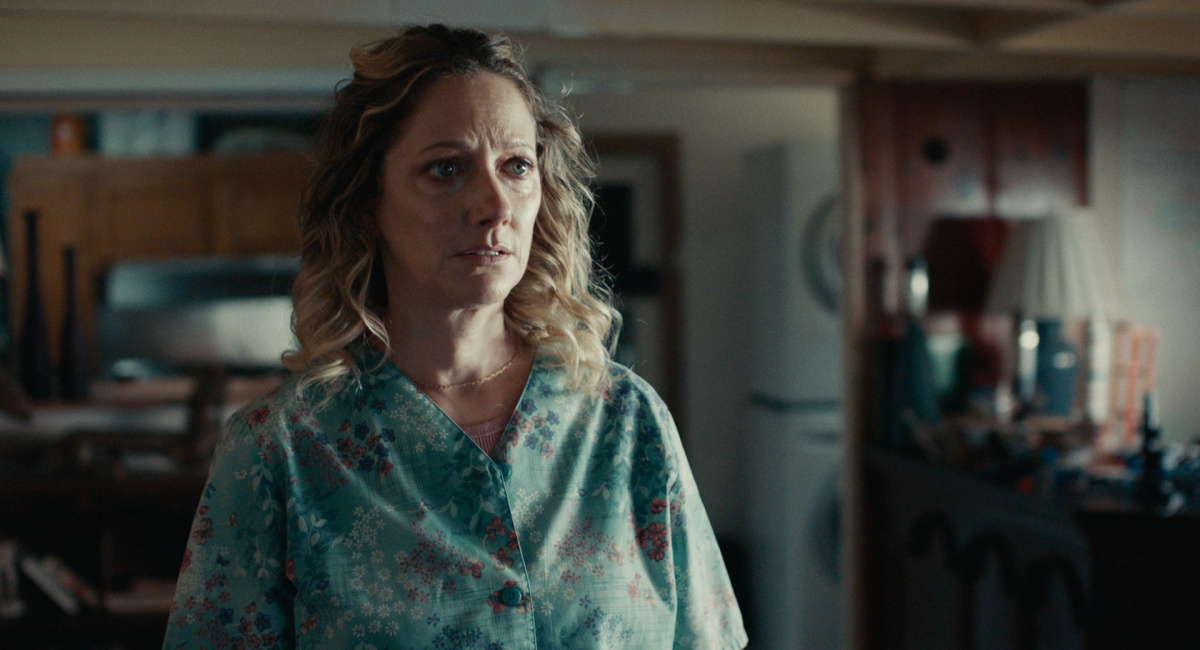
Judy Greer in Well Go USA Entertainment’s 'Aporia.'
Other Movies Similar to ‘Aporia':
- 'Planet of the Apes' (1968)
- 'Time After Time' (1979)
- 'Time Bandits' (1981)
- 'The Terminator' (1984)
- ‘Back to the Future' (1985)
- 'Bill & Ted's Excellent Adventure' (1989)
- 'Back to the Future Part II' (1989)
- ‘Back to the Future Part III' (1990)
- 'Terminator 2: Judgment Day' (1991)
- 'Army of Darkness' (1992)
- 'Groundhog Day' (1993)
- 'Timecop' (1994)
- 'Twelve Monkeys' (1995)
- 'Austin Powers: The Spy Who Shagged Me' (1999)
- 'The Time Traveler's Wife' (2009)
- 'Hot Tub Time Machine' (2010)
- 'Looper' (2012)
- 'About Time' (2013)
- 'Edge of Tomorrow' (2014)
- 'X-Men: Days of Future Past' (2014)
- 'Predestination' (2014)
- 'Interstellar' (2014)
- 'Arrival' (2016)
- ‘Avengers: Endgame' (2019)
Buy Judy Greer Movies On Amazon





